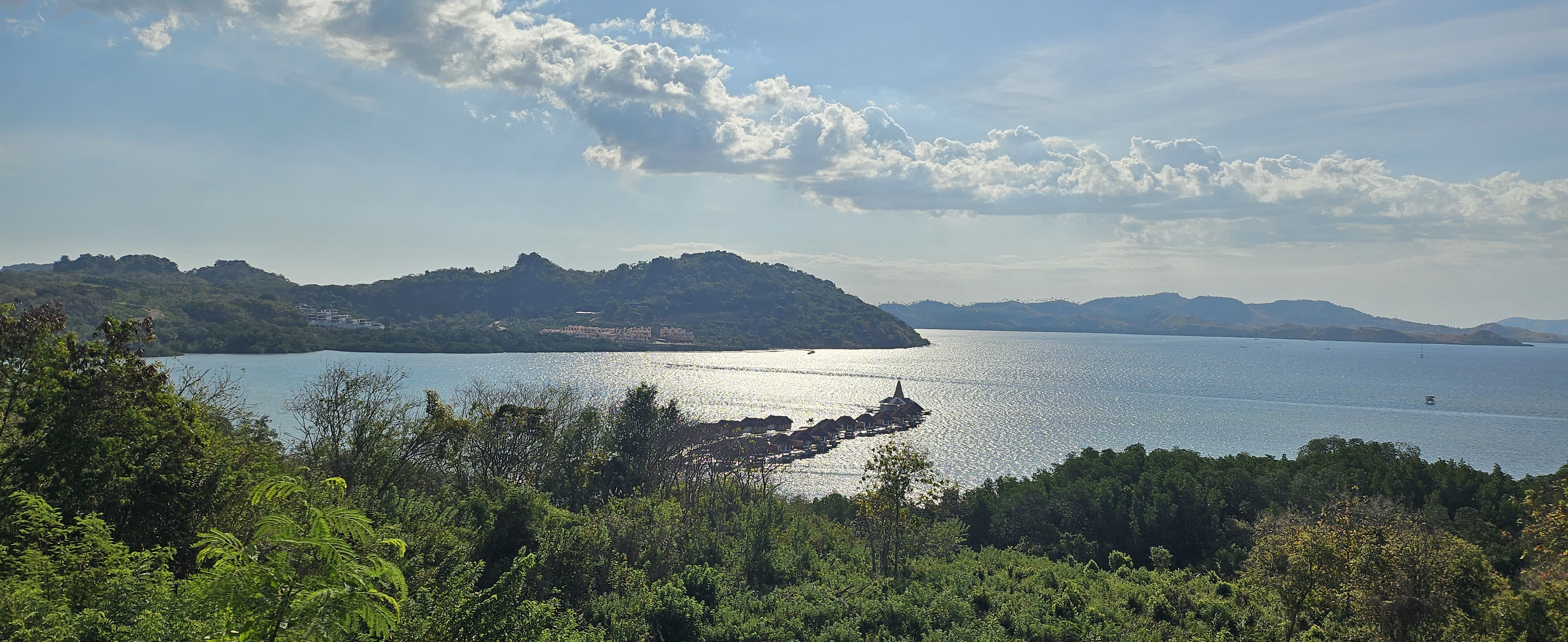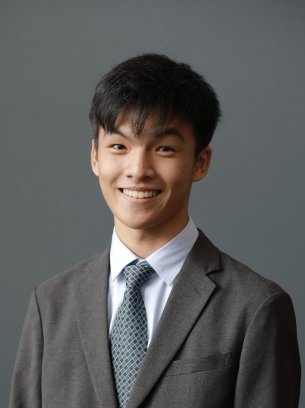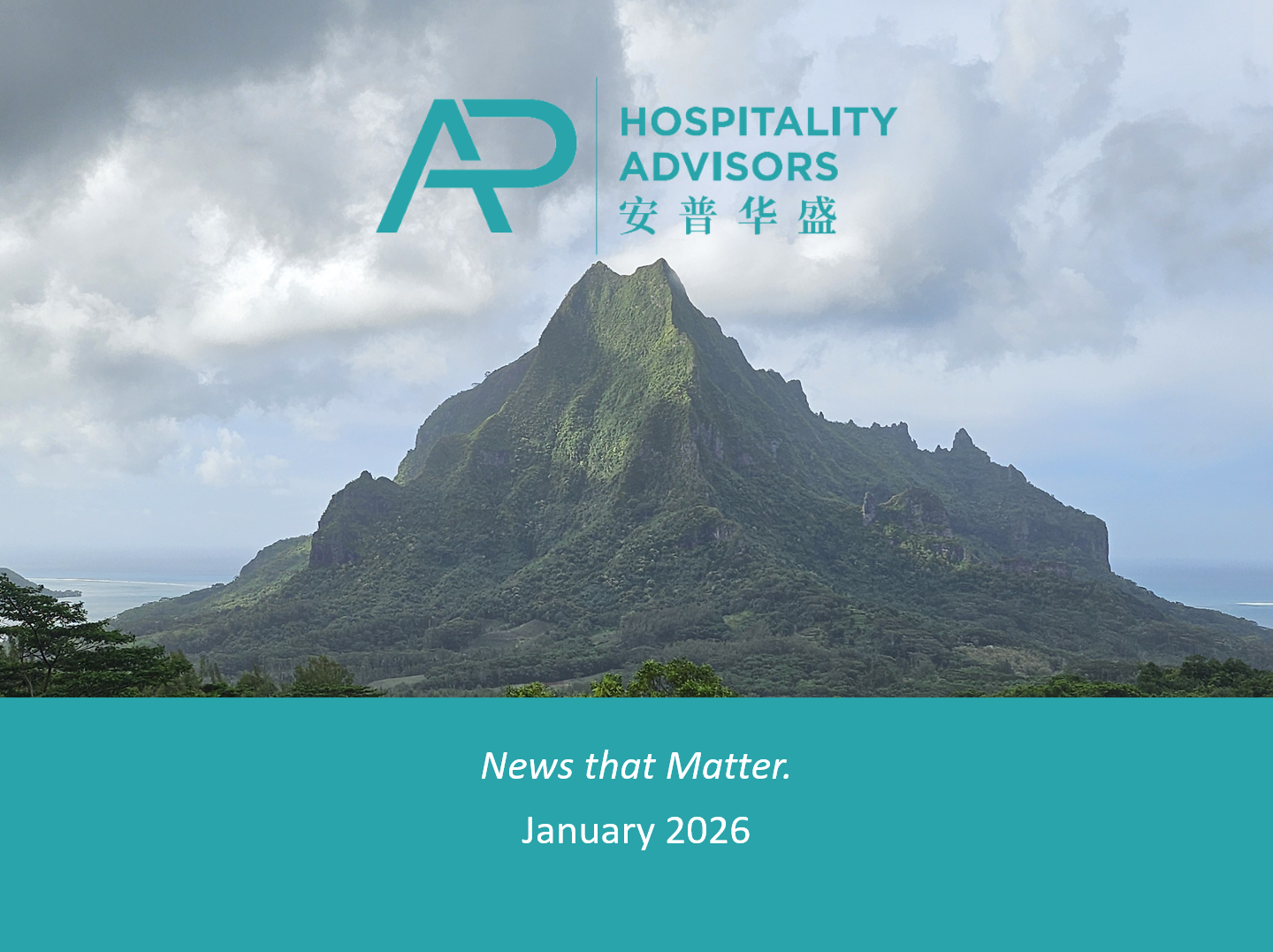AP COVID Hospitality Bulletin Asia Pacific - April 2022

New Publication: AP Asia Pacific Hotel Operator Guide (HOG) is the most established publication in the industry in Asia Pacific to guide investors and owners in understanding the scale, presence, and capabilities of hotel operators in the region. HOG highlights geographic distribution and brand presences of the existing properties and pipeline supply, as well as management structure by operators. To read more about the publication, please click here for the excerpt.
Transactions that matter.
1. Hotel Clover Jalan Sultan, Singapore
- Hong Kong-based Weave Living announced its joint acquisition of 88-key Hotel Clover in Jalan Sultan with Singapore-based property developer SLB Development at SGD 74.8 million (USD 55 million) or USD 627,000 per key. The property consists of 17 conservation shophouses in Kampong Glam Area, and it is on a 99-year leasehold starting 2008.
- Marked as the first acquisition outside its home city, Hong Kong, Weave Living would rebrand the property as Weave Suites providing furnished rental accommodation and multi-functional shared space, the co-living space is set to open by early 2023. This would also be the first co-living project invested by SLB Development for income diversification besides their portfolio in residential, industrial and commercial sectors.
- The co-living market in Singapore is catching investors’ and operators’ attentions on both long-term and short-term offerings. Caliwoo, a co-living brand developed by Singapore-based LHN Group, grows its portfolio across Singapore through asset acquisition and redevelopment; the brand also launches its own hotel concept in March, and currently owns and operates over 800 units citywide. Lyf, a co-living concept developed by Singapore-based The Ascott Limited, expands their footprint rapidly with 18 properties in 9 countries, including 3 in Singapore.
2. Ambassador Hotel Hsinchu, Taiwan
- The 257-key Ambassador Hotel Hsinchu and adjacent buildings are acquired by Trans Globe Life Insurance from the sellers, Ambassador Hotel and HCT Logistics at TWD 4.2 billion (USD 147 million) in total. Opened in 2001, the mixed-use development project also came with retail space and parking space. Ambassador Hotels agrees with a 20-year leaseback from the buyer after the transaction, while the plan for retail space remains unclear after the lease was ended back in 2018.
- Aside from the sale-leasebacks transaction, Ambassador Hotels is actively seeking for redevelopment opportunities for its two owned properties in Taipei and Kaohsiung. The property in Taipei is scheduled for a mixed-use redevelopment scheme including one hotel tower and 2 residential towers, and the hotel would be managed by Palace Hotel Group under a hotel management agreement in the future. On the other hand, the property in Kaohsiung is likely to be redeveloped as branded residences in partnership with local developers and investors.
- Notable transactions in the Taiwanese hotel market are driven by a perspective of investment diversification or redevelopment amid COVID-19 pandemic. The acquisition of Sunworld Dynasty Hotel Taipei by Fubon Life Insurance and Hotel Indigo Hsinchu by Shin Kong Life Insurance are both acquired by insurance groups for long-term investment.
3. Hotel Lindrum, Australia
- Australian developer Time & Place takes over the 59-key Hotel Lindrum from experienced property developer, Robert Magid in an AUD 50 million (USD 37 million) deal. Operated under Accor’s MGallery, the boutique hotel is named after billiard champion Walter Lindrum. Situated in eastern end of Melbourne CBD, the property is within walking distance to various leisure attractions and public transportation.
- Robert Magid acquired the property together with Harbour Rocks Hotel in Sydney from fund developer Cbus Property in 2008. In addition to the revamp of the asset, Hotel Lindrum also secured a permit for redevelopment of a 30-level mix-used project comprising hotels rooms and residential units. This is likely to be the Melbourne’s first major revitalization project in 2022, and the potential perspective of redevelopment pushes the property value to USD 633,500 per key.

COVID news that matter.
China
- Starting in late March China is going through one of the largest lockdowns in Shanghai to tackle the spread of Omicron. The lockdown is taking place in two stages starting from the eastern side of the city. Although the fully vaccinated population has reached over 87% in China, the government remains mute on reopening the border, instead tightening border controls on all international and cross-regional arrivals. The zero-COVID (or “dynamic zero") strategy is faced with small outbreaks in China two years after the pandemic started, and even a small number of cases might trigger lockdowns of entire cities.
- The strict entry control between different cities and provinces has stimulated more local tourism and excursions. The ski season in northern China ended in late March while more indoor ski resorts emerge after the Winter Olympics this year. According to the report released by China Tourism Academy, travelers from warmer cities in southern China are increasingly eager to spend on winter sports, and cities like Hangzhou and Shenzhen are seeing more indoor facilities providing related experiences even during summer. Other popular activities include flower viewing, cultural experiences and lesser-known destinations are trends observed during the 3-day spring break in China.
Indonesia
- Starting 22 March, quarantine requirements for international air travelers arriving at operating airports across Indonesia was waived after a successful two-week quarantine-free travel trial in Bali, Batam, and Bintan. While Bali opened its door to international travelers in October last year, only 45 international arrivals were recorded in the whole year. The government also granted inbound travelers from 25 countries visa on arrival, such as China, Japan, Korea, and all ASEAN members starting in late March.
- Meanwhile, the government continues the development of “Super Priority Destinations” across Indonesia, the 5 existing focal points include Lake Toba, Borobudur, Labuan Bajo, Mandalika and Likupang. Despite the lesser popularity compared with Bali, these five destinations have their advantages and potential in becoming world-class destinations. For example, Borobudur is named as one of the UNESCO cultural heritages, and Lake Toba is the largest lake in Southeast Asia with abundant natural resources.
Singapore
- Starting from April 1, Singapore lifted all quarantine requirements and entry restrictions for fully vaccinated travelers with valid pre-departure tests and travel insurance. The number of daily new cases has dropped from over 20,000 in February this year to around 6,000 at the end of March. The city-sate is also loosening related social distancing measurement at the same time, including optional mask wearing in outdoor area, greater capacity for events and gatherings, and sale of alcohol at F&B outlets in late evenings. Prime Minister Lee Hsien Loong and the team announced that Singapore would move towards a new phase of living with Covid-19. The new measurements are expected to boost the arrival of both leisure and business travelers more effectively than the VTLs with certain countries enacted in the past months.
- While the number of visitor arrivals would take some time to bounce back to 2019’s level, the city state stays optimistic for its leisure and hospitality development. Two integrated resorts operator, Marina Bay Sands (“MBS”) and Resorts World Sentosa (“RWS”), both announced their expansion plan this year. MBS currently undergoes a USD 3.3 billion expansion scheduled to be completed in 2026, and the plans including renovation on existing assets and adding a 4th tower and a 15,000-seat arena. RWS, on the other hand, would start its USD 3 million expansion of Universal Studio and aquarium in Q2 2022, while the renovation of its hotel properties will take place in multiple phases.
Reopening status in Asia Pacific.
Starting from earlier this year, more and more countries commenced opening up their borders to international travelers after vaccination rates reached the level of 'herd immunity' in the country. Instead of featuring the vaccination progress in Asia Pacific, the AP newsletter will henceforth indicate the reopening status of different countries and regions. While each might require booster or PCR test results as part of their respective entry requirements, the majority of the destinations have completely or partially removed the quarantine requirement on visitor arrivals. Additionally, leisure travel is expected to gradually return with the resumption of international travel in Asia Pacific.









